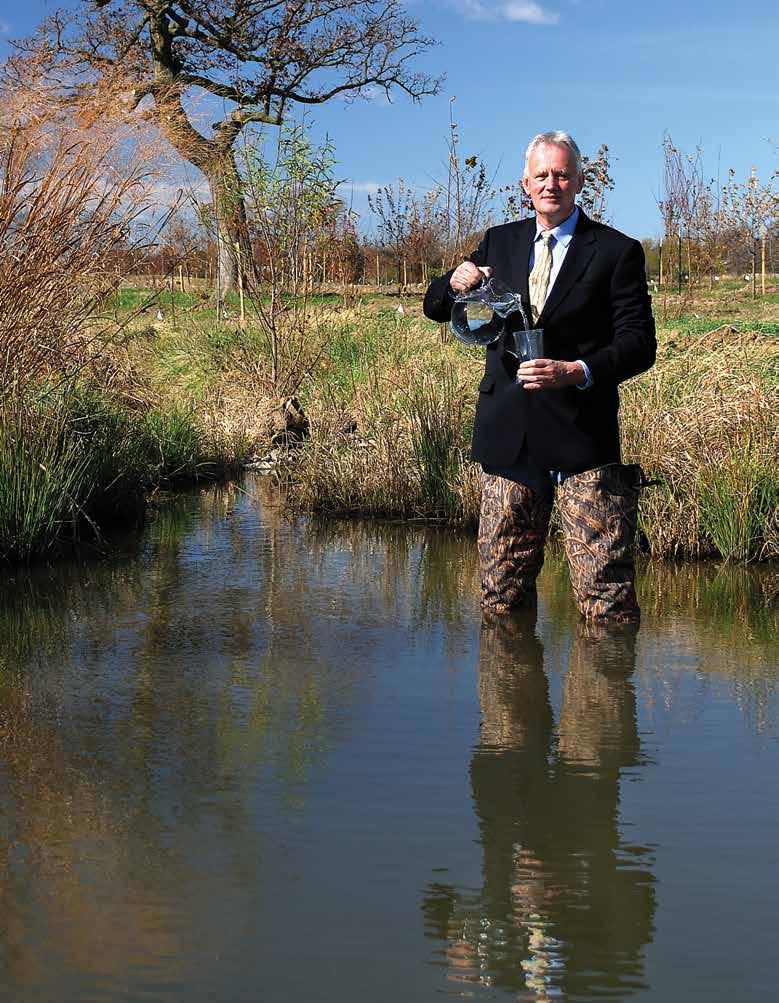
18 minute read
Ken Moore
A Legacy in Q&A Soil and Water with Andrew Sharpley
By Ken Moore
Andrew Sharpley, one of the founders of the Arkansas Discovery Farms Program, has officially retired from his post as a Distinguished Professor in the crop, soil and environmental sciences department at the Agricultural Experiment Station, the research arm of the University of Arkansas System Division of Agriculture and Bumpers College of Agricultural, Food and Life Sciences. He is still working on a few projects from his home overlooking Beaver Lake in Benton County.
Sharpley grew up in Manchester, England and attended the University of North Wales, where he developed an interest in soil science. As a graduate student, he had an opportunity to work on a dairy farm in New Zealand, where he eventually earned his doctorate. In 1978 he joined the USDA Agricultural Research Service and spent more than 20 years, first in Durant, Okla., then later at Pennsylvania State University. It was during this time he met Tommy Daniel, a soil scientist with the UA Division of Agriculture. They shared similar interests and that relationship opened doors for Sharpley to come to Arkansas in 2006.
Ken Moore recently had an opportunity to visit with Dr. Sharpley about his work with farmers and ranchers on conservation practices on their farms to preserve water quality. How did your career path lead you to Arkansas and the Agricultural Research Station?
A position came open here at the University of Arkansas. I came and talked to Dr. Milo Shult (former head of the Division of Agriculture), had an interview and gave a couple of talks, and the rest, as they say, is history. Milo recruited me, he wanted to get me here, and he made it happen.
You were instrumental in the development of the Discovery Farm program in Arkansas. How did you learn about it and why is it so important?
When I moved here, I had a lot more freedom, which was encouraging and challenging at the time. Dr. Shult and later Dr. Mark Cochran, who took his position, gave me enough rope to hang myself. I didn’t, but probably came close a couple of times. As long as you could justify and there was sound science in your work, they had your back. That freedom to pursue certain projects was instrumental in my work. I got an invitation from Wisconsin and the Discovery Program there to go up and review it. It had been in place for about eight years. I went up with a colleague and came back thinking this is something that can work here (in Arkansas). We mentioned it to different people, (including Dr. Mike Daniels, a specialist with the Cooperative Extension Service) and as you know ended up taking a group of Farm Bureau leaders and staff to Wisconsin so they could see the Discovery Farm Program for themselves. We visited several farms, including a dairy farm, met with local farmers and the trip went so well the Arkansas farmers came home saying this is something we need. There were a lot of people with Farm Bureau who wanted this. We realized Arkansas was probably a lot further ahead of other states and more proactive in dealing with environmental issues. Farmers were telling us, “We need to be on the train and not left standing at the station when the train’s gone.”
Q A Q A
QWhat did Farm Bureau bring to the table with this project?
AI think the real power of Farm Bureau and the people we work with was the fact they opened doors for us with different farmers who had operations where this program could work. We got some funding from the Natural Resources Commission to buy equipment so we could build the infrastructure to start doing some sites. The first one was at Jeff Marley’s poultry farm at Elkins in Washington County, and we also installed one at Terry Dabbs’ rice farm at Stuttgart. There have been other farmers who have come on board who weren’t active Farm Bureau, so it wasn’t biased. We realized we had to make this open and transparent. It wasn’t farmers going out on their own, like letting the fox in the chicken house. If it’s run by farmers, it will be biased toward them, so we set up a stakeholder committee, which included various agricultural agencies. The Nature Conservancy was one, Arkansas Department of Environmental Quality (ADEQ) was another. So, that’s how it started. What can you tell me about how the project worked? Mike Daniels and I developed a great friendship and working relationship. He was extension, I was research. I wanted to be more applied. He wanted to do research-based, extensionbased science. Our relationship was mutually beneficial. We ended up with four original farms. Two were near the L’Anguille River in Cross County, but all were set up different yet designed to measure runoff from rainfall events. It’s more how the farmer wants to make the program work for them. Not everything is suitable for a given farmer. We would never tell a farmer he needed to implement a certain conservation practice. It’s not our job to be farming. We wanted their investment into it. At Jeff Marley’s poultry farm, we measured what was going in and coming out of a pasture, then into the White River. Jeff graded out and leveled a grass waterway that was perfect for monitoring the runoff. In the end, we’ve been there about six years, and Jeff is a great spokesperson for the program. Putting in the grass waterway reduced nutrients running off into the creek by 50-60 percent.
A hallmark of the Discovery Farm Program – which the farmers insisted on – is doing this over a number of years so you get representative data over time. Then we can publish it, report it to other groups, allow the farmers to use the data for themselves to document what they’re doing. It provided “sound science” to make it work.
Many farmers are using effective conservation practices already, but getting them involved in the program just showed to us, getting farmers invested in the program motivates them to become proactive in it once they see the data and how it benefits them. That’s a very rewarding part of the process for me, seeing how it empowers some of these farmers.
Q A
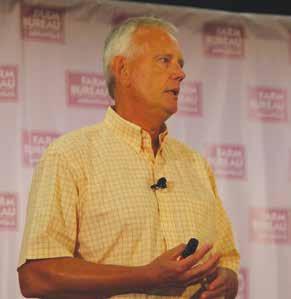
QYou were selected to lead a diverse research team to determine whether C&H Hog Farm in Newton County was a threat to Big Creek and the Buffalo River watershed. Now that that project is over, what was your takeaway from it? The university had been doing this type of work. The Discovery Farm program we’re doing is the same type of thing in that we’re sampling nutrient runoff into watersheds. So we were a logical fit to conduct the study in an unbiased way, to do the scientific rigor to determine whether the farm was having an impact or not on Big Creek. ADEQ set up this agreement, a Memorandum of Understanding, with us. There was some pushback from the industry at first to our conducting the research and some strong sensitivities on both sides of this issue. I remember going to a meeting and there were some Farm Bureau people there. The defining moment I think in all of this was when Jason Henson (one of the owners of the farm) got up and said, “If I’m causing a problem I want to know it. Don’t we want to know if I’m part of the problem?” Nobody said anything. He was right. The owner of the farm had lived in that watershed for several generations and did not want to be part of the problem. He wanted to be open about this and even though there was some reluctance on the integrator’s part, having the owner of the farm saying that changed the scenery so to speak. It (the Buffalo River) probably became one of the most intensively sampled watersheds in the U.S. in terms of number of samples, different types of areas, springs, the creeks and fields where the slurry was being applied, etc. What did you learn from the Big Creek project? It was a very intensive project. There were about 12 people on the team, each with different disciplines … field technicians, a guy from the U.S. Geological Survey, a hydrologist. We had the bases covered. There was some thought the pond was leaking, but we didn’t see any leakage. We felt there wasn’t any evidence that would allow us to, with our technical background and credibility on the line, say the ponds were leaking. Despite receiving some critical emails and criticism we stuck to our guns and looking back now that is something we can be proud of. And in the end the data we obtained will be useful in other areas. This got to be bigger than just Big Creek. We all
A Q A
continued on page 18>>
Sharpley was the leader of a diverse research team put together to monitor for any potential runoff from C&H Hog Farm near Big Creek in Newton County.
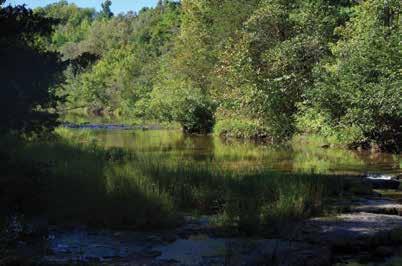

know the end of the story here. There was a lot of pressure put on the farmer but at no time did he say I don’t want you to do this. For me, I had to admire Jason and the whole family for allowing our team to conduct our research. They honestly wanted to know what was going on. They never tried to stop us from finding more data to prove one way or the other. I will always respect them for that. Reflecting on your career what would you say is the legacy you are leaving for others to follow?
Probably gaining the confidence of the farmers through your reputation, the way you behaved, and doing your work in a professional manner. It’s been very rewarding. All of the farmers I’ve worked with wanted to be good stewards of their soils and water. I’ve also had the opportunity to work with a lot of different stakeholders in the field, like Mike Daniels, Farm Bureau, Debbie Moreland and the Arkansas Conservation Districts and poultry integrators. Looking back would I do anything different? No. There has never been any I coulda, shoulda, but didn’t. I’m very content knowing I did what I felt was important. The most important thing was the friendships, partnerships and the teams I worked with that make us better. Teamwork may not be for everybody, but it damn well worked for me. *
Q A
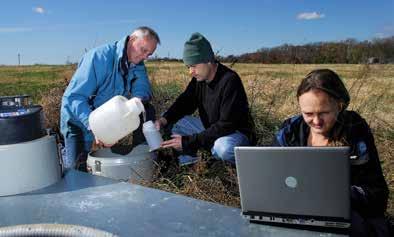
“All of the farmers I’ve worked with wanted to be good stewards of their soil and water,” says Sharpley.
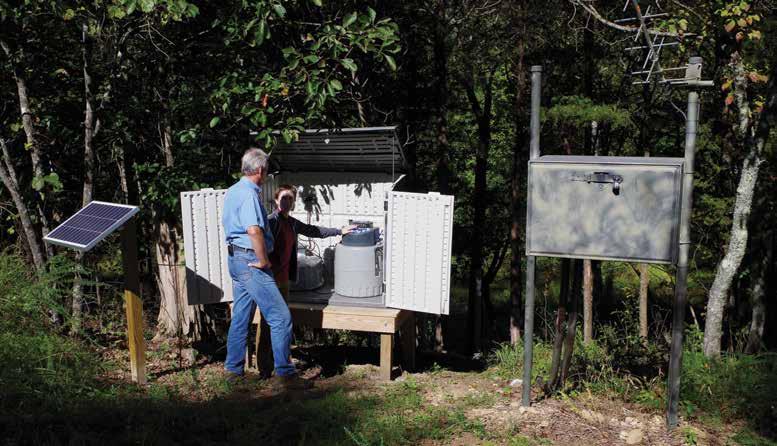
WINTER 2021

Shifting Seasons Tips on Preparing for Spring
An official publication of Arkansas Farm Bureau Federation distributed to more than 43,000 farming and ranching households in Arkansas.

For Advertising Rates contact Paula Caruthers 501.725.3553
or email pcaruthers@pcipublishing.com
featuring
Wood artistryin

Equipment | Services | Supplies | Tech | Training
AUG13-14
Hot Springs Convention Center Exhibitor & Info: 501/224-2232 email Larry Boccarossa:
lboccarossa@sbcglobal.net 2021

TR H UCK BED COVER EADQUARTERS




Attractive and affordable, the LITERIDER® Roll-Up Cover is the storage solution for you. The exclusively patented style adds the finishing touch to your truck box while the versatile and functional performance maximizes the utility of your pickup. From the increased capacity design to the easy one person operation, carry more gear under this durable, long-lasting tonneau cover. See the quality, feel the difference, LITERIDER® Roll-Up Covers are crafted for great ambitions.
PRUITT’S MID-STATE STOCKYARD




SALE EACH MONDAY @ 1 P.M.


501-982-2245 • 401 Municipal Drive, Jacksonville, Arkansas 72076 • Goodselltruck.com
For Advertising Rates contact
Paula Caruthers 501-725-3553


or email pcaruthers@pcipublishing.com

FROM OUR FARM OR RANCH TO YOUR GRILL



Working to preserve the family farm tradition in Northwest Arkansas
Reprinted with permission, Arkansas Democrat Gazette; State of Arkansas Agriculture By: Randy Rice
Pam Nelson, Land Protection Coordinator at the Northwest Arkansas Land Trust, and Kelton Hays, Executive Director of Cobblestone Farms in Fayetteville, look over speciality crop seedlings ready to be transplanted outside. NWALT meets with farmers for free to provide education and information about its Farmland Preservation Programs, some of which can pay farmers for agricultural conservation easements. n late March, we celebrated our history and heritage with the induction of 30 additional Arkansas family farms into the Arkansas Century Farm Program in part supported by Arkansas Farm Bureau. Below is a link to the entire publication.
While this is a popular feature and program celebrating Arkansas farm families, it is important to acknowledge that the actual number of farms and farmed acreage in Arkansas has been decreasing over the past several years. Fortunately, concerned organizations in Northwest Arkansas led by the Walton Family Foundation and including the Northwest Arkansas Land Trust (NWALT) and others are stepping forward to address the issue.
“The family farm is rarely passed down as it once was generation to generation,” said Susan Koehler, Farmland Preservation Manager for NWALT. “And these existing farmers are farming through their retirement for several reasons. They may not have heirs who want to farm, they may not have the finances to fund retirement, and this is on top of being reluctant

Ito let go of a lifestyle they have grown to love.” And then you have the new farmers, many of whom are first generation who are not inheriting land much less an established farming business. “Many new and beginning farmers have the passion and skills to farm, but they are struggling with the capital funds required to get access to land and the equipment,” Susan said. “Small family farms need to be close to communities so they can sell to a variety of markets. The remaining land in these areas is also desirable to commercial developers, which often makes it too costly to purchase and support a farm business.” Today, Northwest Arkansas is known for its livestock production. But not too long ago, the area was also known for its orchards, nuts and other specialty crops. With the recent success and popularity of the farmers markets in our area, fruit and vegetable production has increased, yet there is still unmet demand for more of these crops at a wholesale scale. Many new, younger farmers are interested in going in that direction.
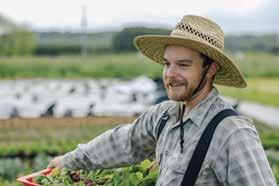
Frank Ostapowicz is 30 years old and new to the farming scene. Like many others, he knows that to be a farmer takes a lot of work, but he also knows if there is a will there is a way. “I’ve been a wanna-be farmer for 10 years or more. I started with a garden and got more serious over the past couple of years,” Ostapowicz said.
Ostapowicz was one of the first students to enroll at the Center for Arkansas Farms and Food starting with the apprenticeship program. He split his time between two farms: The Den Herders farm in West Fork, Arkansas, which is primarily a nursery style farm that grows and sells several different types of produce and the Appel Farm, primarily a strawberry farm with some other produce (they also sell hogs to supplement their winter income), located in Springdale, Arkansas. Ostapowicz sees himself creating a similar diverse farm plan including specialty crops and some livestock. In 2020, he took the next step toward this dream and enrolled in the Farm School and also works part time at its model farm on campus in Fayetteville.
“I’ve really appreciated getting individually sourced knowledge and different perspectives through my farm mentors and getting exposure to the techniques people use to farm. Right now, I am looking to lease some land on my own to put into practice the things I have learned. Farming is a culture within itself and without programs like NWA Farm Link and the Center for Arkansas Farms and Food, I wouldn’t be near as close to my goal of farming full-time, but access to land is still an issue.” Ostapowicz said.
To help address the issues, a feasibility study funded by the Walton Family Foundation was conducted in 2017 to find out what the barriers were to growing more fruits and vegetables and what would it take to overcome those barriers. As a result of the findings, the Walton Family established an NWA Food Systems initiative. It is a multifaceted program designed to address the issues and bring different partners together including the University of Arkansas, NWALT and a food aggregator or hub that was not currently operating in the community.
The University of Arkansas brought in an education component establishing the Center for Arkansas Farms and Food, including the Farm School as well an Apprentice Program. Another critical piece was market opportunities. Farmers have said that they would be happy to grow more fruits and vegetables if they had the markets to sell them. And this means creating additional markets beyond the local farmers markets. This is where the Food Conservancy came in led by Kansas native Diana Endicott. Through the Food Conservancy, she and her team are working to develop institutional markets and wholesale markets in Northwest Arkansas. A big breakthrough was getting Harps to come on board. The Food Conservancy is also offering some ground beef and may consider other protein, but right now the focus is around fruits and vegetables.
The role of the NWA Land Trust is around farmland preservation, access and support for farmers, including oversight of NWA Farm-Link, a free service and website where both farm seekers and farmland owners can connect as well as get help with their goals. NWALT also can pay farmers looking to expand specialty crop production for conservation easements that support agricultural activities and is working to become an eligible partner entity to support the USDA National Resources Conservation Services Agricultural Land Easement Program that covers a variety of farm and ranch enterprises also paying for easements.
NWALT is encouraging established farmers to contact them to learn more and get connected to the network they are building and tap into new resources. And, of course, if they are interested in pivoting to more fruit and/or vegetable production themselves, NWALT can help get them connected to the Food Conservancy to get their product to market.
Regarding aspiring farmers, Susan says the University would perhaps be the best place to start to enhance and develop their skills. “Farm seekers with more experience ready to grow and looking for land can work with NWALT to get connected to an established farmer who may want to lease or sell,” Susan said. “Starting a farm business from scratch is really tough. We can help by providing resources, explaining conservation including the possible financial and tax benefits, and helping them find their forever farm.”
State of Arkansas Agriculture and Century Farm Program
http://www.epageflip.net/i/1356448-2021/0?
Northwest Arkansas Land Trust • 479-966-4666
Info@nwafarmlink.org

WINTER 2021
Shifting Seasons Tips on Preparing for Spring
SUMMER 2020



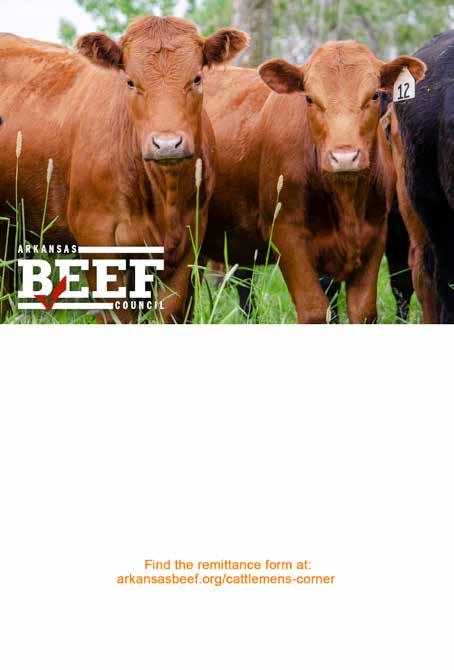
Into the Sunset Farm Bureau’s Justice Calls it a Career
FALL 2020
For more information, contact the Arkansas Beef Council at (501) 228-1222 or visit beefboard.org
A Meaty Issue: The Need for State Inspection Plus: Mass Timber Tappe Talks Retirement
An official publication of Arkansas Farm Bureau Federation distributed to more than 43,000 farming and ranching households in Arkansas.
For Advertising Rates contact Paula Caruthers 501.725.3553
or email pcaruthers@pcipublishing.com

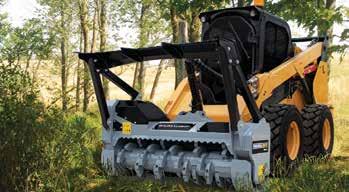

Locate A Dealer Online
sales@baumalight.com | BAUMALIGHT.COM Johnny Organ | 580-309-2405




